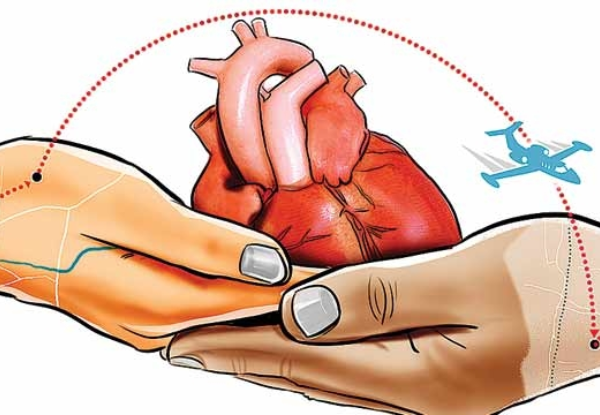Heart Transplantation: Key Information
Heart transplantation is a surgical procedure in which a diseased or failing heart is replaced with a healthy heart from a deceased donor. It is typically considered for patients with end-stage heart failure or other severe heart conditions who do not respond to other treatments.
Key Points:
Indications:
- End-stage heart failure: When the heart is unable to pump blood efficiently and other treatments, like medications or surgery, are no longer effective.
- Severe coronary artery disease: When multiple coronary arteries are blocked and the heart cannot be effectively repaired.
- Severe valvular heart disease: When heart valves are so damaged that repair or replacement is not feasible.
- Cardiomyopathies: Certain types of heart muscle diseases that lead to heart failure.
- Congenital heart defects: Some individuals with severe congenital heart conditions may need a transplant.
Eligibility:
Patients are evaluated based on their overall health, the severity of their heart condition, and other factors like age and kidney or liver function. A heart transplant list is maintained, and patients are prioritized based on urgency and compatibility with available donors.
The Procedure:
The damaged heart is removed through an open-heart surgery and replaced with a donor heart. The donor heart must match the recipient's blood type and size, and the patient's immune system must be carefully managed to prevent rejection.

Post-Transplant Care:
- Immunosuppressive medications: To prevent the body's immune system from rejecting the new heart, recipients must take medications that suppress the immune response.
- Regular monitoring: Follow-up appointments are necessary to monitor heart function and detect signs of rejection or infection.
- Lifestyle changes: Patients may need to adopt a heart-healthy lifestyle, including exercise, a healthy diet, and avoiding infections.
Risks and Complications:
- Rejection: The body may try to reject the new heart, especially in the first year after the transplant.
- Infection: Immunosuppressive drugs increase the risk of infections.
- Long-term complications: Such as coronary artery disease in the transplanted heart, and a higher risk of certain cancers due to immunosuppressive therapy.
Life Expectancy:
The average survival rate after a heart transplant is around 10 to 15 years, but some patients can live longer with careful management and regular follow-ups.
Heart transplantation is a life-saving procedure for patients with severe heart disease, but it requires careful monitoring and lifelong medication to prevent rejection and manage other complications.